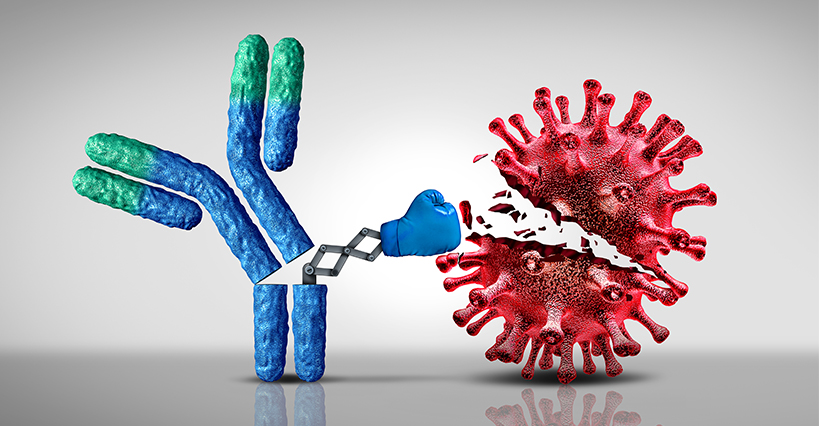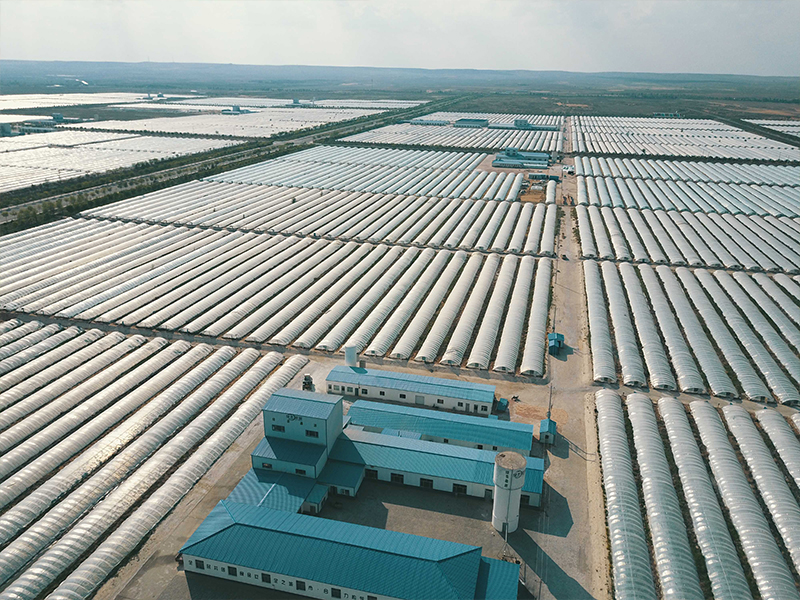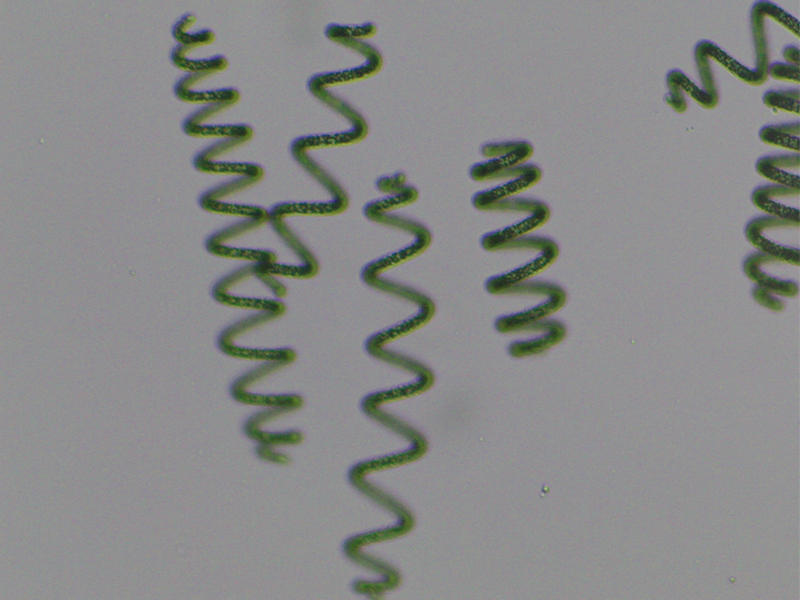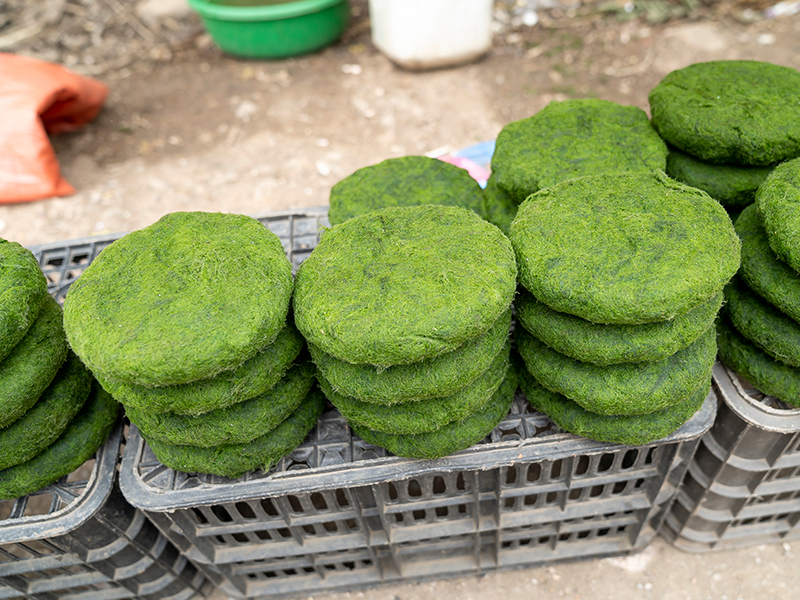
New Means For Defending Against COVID-19: Spirulina Can Reduce Severe COVID-19 Risk by 70%
A study by Israeli and Icelandic scientists claims that spirulina may reduce the risk of severe COVID-19 by up to 70%. The findings of the study come at a time when South Africa is bracing itself for the fifth wave of COVID-19. Specialist in complementary medicines, Giulia Criscuolo discussed the outcomes with Gareth Edwards.
About spirulina:
Spirulina is a biomass of cyanobacteria (blue-green algae) that can be consumed by humans and animals. It is also used as a feed supplement in the aquaculture, aquarium, and poultry industries.
Historical use
Spirulina was a food source for the Aztecs and other Mesoamericans until the 16th century; the harvest from Lake Texcoco in Mexico and subsequent sale as cakes were described by one of Cortés’ soldiers. The Aztecs called it tecuitlatl.
During 1964 and 1965, the botanist Jean Leonard confirmed that dihe is made up of spirulina, and later studied a bloom of algae in a sodium hydroxide production facility. As a result, the first systematic and detailed study of the growth requirements and physiology of spirulina was performed as a basis for establishing large-scale production in the 1970s.
Food and nutrition
As an ecologically sound, nutrient-rich dietary supplement, spirulina is being investigated to address food security and malnutrition, and as dietary support in long-term space flight or Mars missions. Its advantage for food security is that it needs less land and water than livestock to produce protein and energy.
(At the end of the article is placed nutritional facts with spirulina (dried).)
Spirulina is highly valued by scientists and international organizations around the world for its comprehensive and balanced nutrition and its high value in disease prevention and health care. Nutritionists and pharmacologists call it “the nutritional champion of the earth” and “the new star of medicinal source”. The World Health Organization has recognized spirulina as “the best health product of the 21st century” and “the super nutritious food of the future”; UNESCO has recommended spirulina as “the most ideal and perfect food of tomorrow”; the Food and Agriculture Organization of the United Nations (FAO) has also solemnly approved spirulina as “the most ideal and perfect food of tomorrow “Spirulina is also recommended by the Food and Agriculture Organization of the United Nations to the world as “the best food resource and future food for human beings.
The nutritional value of Spirulina is considered by modern science as a “micro-nutrient bank”, with the content of 8 essential amino acids close to or exceeding the FAO standard. The ratio of protein, sugar and fat is about 60:20:5, which is a balanced nutritional composition. In addition, it also contains a variety of vitamins and trace elements, including β-carotene content of 4000mg/kg and vitamins up to 1320mg/kg. 15g of dry weight spirulina per person per day can ensure the source of necessary nutrients. Spirulina has been recognized by the FAO as “the most ideal and best food for human beings” for its high nutritional value and high safety.
The safety evaluation conducted by the U.S. Dietary Supplement Expert Committee showed that Spirulina is safe and has no toxic side effects.
Spirulina has been found to have a variety of pharmacological effects. Such as hypolipidemic, antioxidant, anti-infective, anti-cancer, anti-radiation, anti-ageing, and immune-boosting.
About binmei:
- BINMEI’s spirulina powder comes from algae cultivated in Inner Mongolia Plateau, which is the only spirulina that contains DHA. The protein content is as high as 65%-72%.
- The quality of spirulina depends largely on the light. The annual illumination of 3076 hours in the Inner Mongolia Plateau lays a good foundation for the photosynthesis of spirulina.
- BINMEI use a high-quality water source of 500 meters underground, so the content of heavy metals in spirulina is low(Pb<0.2, As<0.3, Hg and Cd almost 0).
- BINMEI invests a lot of money and time to devote itself to the cultivation of high-quality algae and the production of blue spirulina powder.

Spirulina(dried)Nutritional value per 100 g (3.5 oz)
| Energy | 1,213 kJ (290 kcal) |
|---|---|
|
Carbohydrates
|
23.9 g
|
| Sugars | 3.1 g |
| Dietary fiber | 3.6 g |
|
Fat
|
7.72 g
|
| Saturated | 2.65 g |
| Monounsaturated | 0.675 g |
| Polyunsaturated | 2.08 g |
|
Protein
|
57.47 g
|
| Tryptophan | 0.929 g |
| Threonine | 2.97 g |
| Isoleucine | 3.209 g |
| Leucine | 4.947 g |
| Lysine | 3.025 g |
| Methionine | 1.149 g |
| Cystine | 0.662 g |
| Phenylalanine | 2.777 g |
| Tyrosine | 2.584 g |
| Valine | 3.512 g |
| Arginine | 4.147 g |
| Histidine | 1.085 g |
| Alanine | 4.515 g |
| Aspartic acid | 5.793 g |
| Glutamic acid | 8.386 g |
| Glycine | 3.099 g |
| Proline | 2.382 g |
| Serine | 2.998 g |
| Vitamins | Quantity %DV |
| Vitamin A equiv. |
29 μg 4%
|
| beta-Carotene | 342 μg 3% |
| lutein zeaxanthin |
0 μg
|
| Thiamine (B1) | 2.38 mg 207% |
| Riboflavin (B2) | 3.67 mg 306% |
| Niacin (B3) | 12.82 mg 85% |
| Pantothenic acid (B5) | 3.48 mg 70% |
| Vitamin B6 | 0.364 mg 28% |
| Folate (B9) | 94 μg 24% |
| Vitamin B12 | 0 μg 0% |
| Choline | 66 mg 13% |
| Vitamin C | 10.1 mg 12% |
| Vitamin D | 0 IU 0% |
| Vitamin E | 5 mg 33% |
| Vitamin K | 25.5 μg 24% |
| Minerals | Quantity %DV |
| Calcium | 120 mg 12% |
| Iron | 28.5 mg 219% |
| Magnesium | 195 mg 55% |
| Manganese | 1.9 mg 90% |
| Phosphorus | 118 mg 17% |
| Potassium | 1363 mg 29% |
| Sodium | 1048 mg 70% |
| Zinc | 2 mg 21% |
| Other constituents | Quantity |
| Water | 4.68 g |


